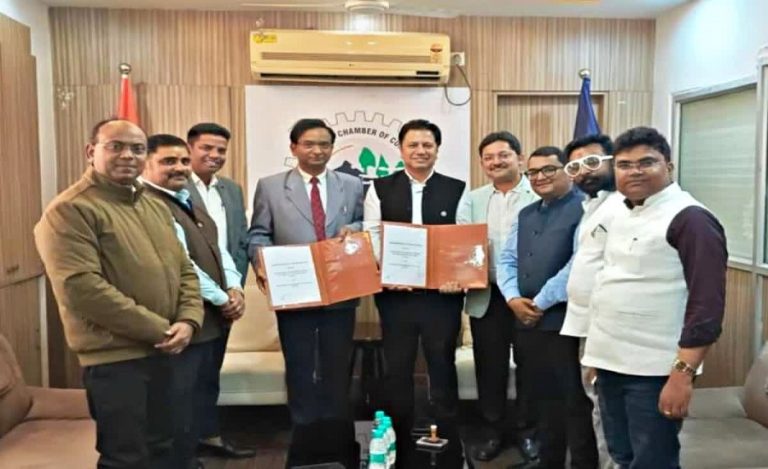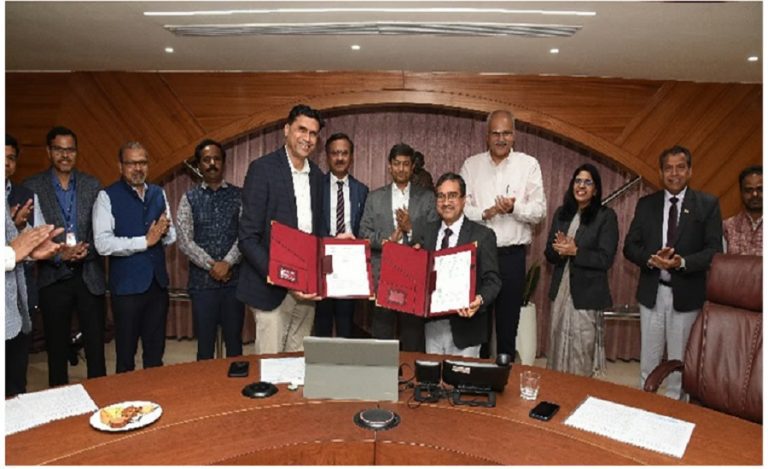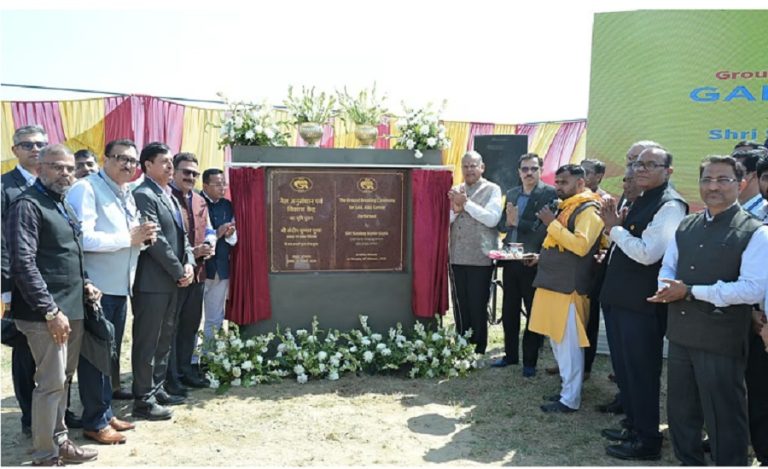With lopsided development and rapid technological advancement, one thing that has been hit the most is the ecological balance, raising concerns about repercussions from nature.
So, to create awareness about the importance of the conservation of our forests and wildlife, an IFS officer has taken a noble initiative whose impact will be long felt. Dr. Ramesh Kumar P, who is the Conservator of Forests and Field Director of Bandipur National Park, and his team has come up with the concept of ‘Bandipur-Yuva Mitra’, which involves training students and making them the ambassadors for protection of nature.
In an exclusive conversation with Indian Masterminds the officer spoke about the initiative and the current challenges that lie outside the forest now.
AWARENESS NEEDED
Bandipur National Park is home to many species which include tiger, leopard, elephants, sloth bears, etc. While Bandipur is one of the first among the nine forests to be declared a tiger reserve under Project Tiger, it is also number one in the population of elephants with the number reaching to around 3000.

With lots of interventions of the forest department and help from the government, the Park didn’t only succeed in increasing the number of tigers in multiple folds, but with anti-poaching camps and regular monitoring of all the species, the situation inside the forest has stabilized further.
However, the challenge now lies outside the forest. Emphasizing on this, Dr. Ramesh said, “With human-animal conflicts and wild animals reaching to the nearby human areas, the nature of challenges in wildlife conservation has changed. We need local support to handle these and let the people understand why animals are coming out. We need to explain to them why the animals are important to us and why we must not harm them. People, specially the ones who reside around the forest, should feel proud about protecting nature and own it as their own.”
TRAINING STUDENTS
So, the Bandipur forest division started the awareness programme with the students under the name, ‘Bandipur-Yuva Mitra’. There are around 150 villages and 800 schools within a km area outside the forest. The students studying in the government schools in this area rarely get the chance to go on a jungle safari or any visit to the Park. “We have recently purchased two buses. Under the initiative, students will come to visit the jungle between Monday to Friday on a one-day tour. They will do jungle safari, followed by 1 hour class about Bandipur, its wildlife, why we should save it and what are the benefits we are getting from that. Then there will some other activities and lunch. They will also be provided with booklets on animals, birds and other species,” the field director said, adding that it is a one-of-its-kind programme that would be continued for years.
.@aranya_kfd launches the @Bandipur_TR Yuva Mitra Card, encouraging youth to take up voluntary, forest conservation works@NewIndianXpress @XpressBengaluru @KannadaPrabha @Cloudnirad @KumarPushkarifs @Amitsen_TNIE @moefcc @byadavbjp @NammaBengaluroo @NammaKarnataka_ @wildmysuru pic.twitter.com/03jBChgGSY
— Bosky Khanna (@BoskyKhanna) January 2, 2023
SOCIAL FENCING
After the tour, there will be evaluation of the students and also the teachers who attend the camp and some of them will be selected as Bandipur Yuva Mitras.
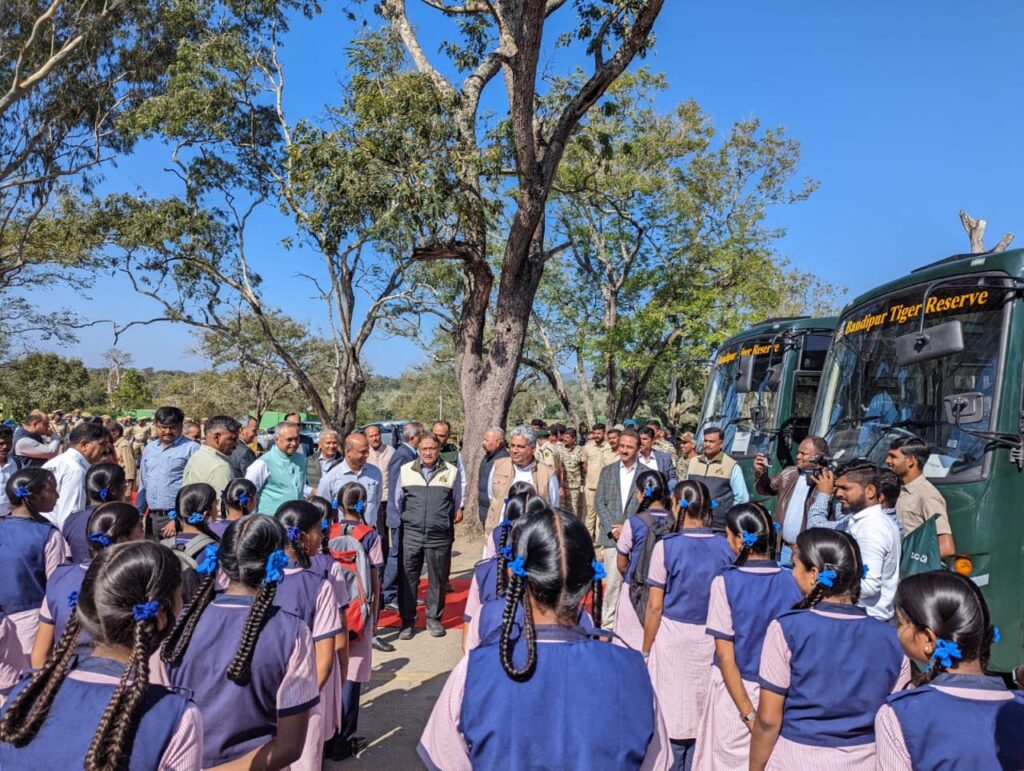
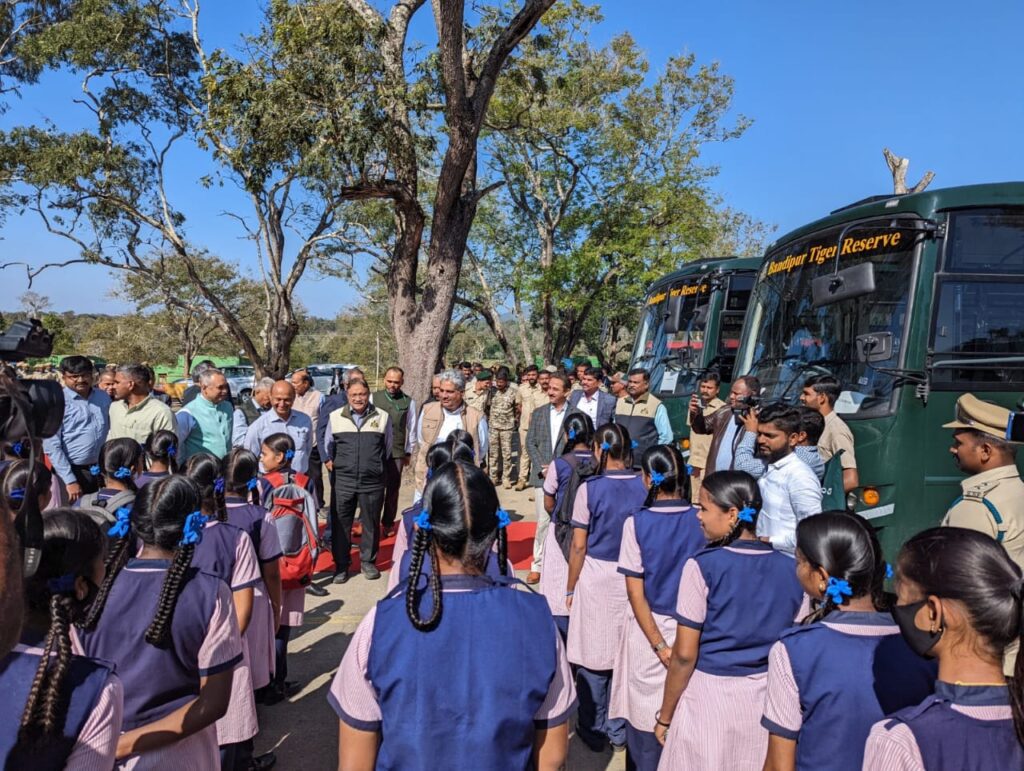
Basically, they will act as eco-volunteers and ambassadors to protect nature and wildlife. Mr. Ramesh further said that they the message to reach to the students and from them, to their parents, and then the whole community. He said, “It is not possible for the department to protect the forest 24 hours. We need local support and this programme will help in the formation of social fencing. In 10 years, the students will be part of the community. We hope that they will take up the responsibility and stop harming animals, and be proud about what they have got in Bandipur. They will be our permanent asset.”








